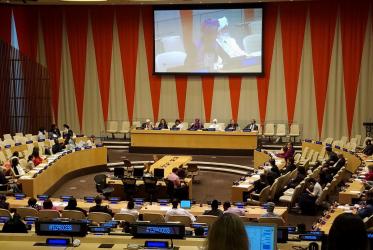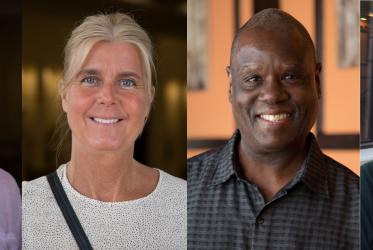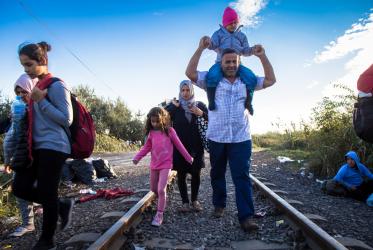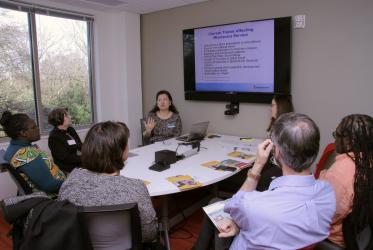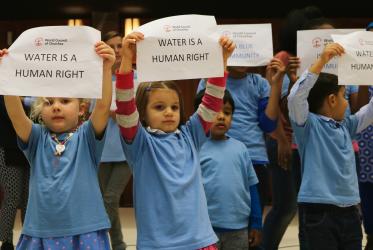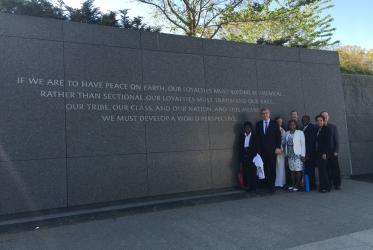Displaying 81 - 100 of 152
"We have our work cut out for us"
10 August 2017
G20 summit: call to pray for peace in Hamburg
07 July 2017
Peace consultations of hope
07 July 2017
Standing Rock decision ”Gospel news” for indigenous communities
08 December 2016
Eco-justice at stake for Standing Rock people in USA
07 November 2016
WCC appeals for support, for all to stand #WithRefugees
31 August 2016
WCC condemns escalating racial violence in the USA
09 July 2016
Pilgrimage and youth
28 June 2016

